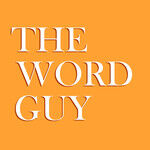No matter how long you've been playing poker, you'll learn or experience something new every session.
My latest lesson came last weekend. I was one of 2,646 players battling in a no-limit hold 'em online freeroll (no cash buy-in) tournament on Full Tilt Poker, trying to advance to the final event in April when the prize will be a seat on Shana's show.
That would be "Poker After Dark," the late-night NBC show hosted by Shana Hiatt, whose popularity springs from her former hostess role on televised World Poker Tour events. To win a spot on the show, all a player has to do is finish in the top nine of a qualifier such as Saturday's, then finish first against 1,000 or so hopefuls in a tourney on April 30.
Piece of cake, right?
Well, I'm no math whiz, but the odds against surviving two large fields like that, back to back, probably are about the same as the chance of being struck by lightning in this country in a given year — roughly 400,000 to 1.
Oh, did I mention that all you have to do to win $100,000 on that TV show is beat out five of the best professional players in the land! With Shana watching.
My strategy against such a big field was to play tight early, not risking big chunks of my $1,500 starting chips with anything but premium hands. Through the first five levels (10 minutes per level), I saw the flop just seven times in 44 hands.
On the final hand of Level 5, with blinds at $40-$80, I caught pocket aces. A player acting in front of me raised to $320, and I wasted little time going all in for $1,258. He called with the A-J of clubs. My aces easily held up, and now I had more than $2,600 in chips.
The lesson? If you're patient, and lucky enough to catch a big hand at the right time, good things happen.
The next key hand came in Level 6 ($50-$100 blinds). In late position, I open-raised to $300 with the A-5 of clubs. The button called, the small blind re-raised to $500, and both the button and I called. A flop of J(c)-4(c)-10(h) looked promising. I had the nut flush draw and the ace overcard.
Surprisingly, acting first, the small blind pushed all-in for nearly $3,000. He had me covered, so my "tournament life was at stake" as they say on TV. I put him on A-J (top pair) or possibly J-10 for two pair, and decided to fold. It was too early to risk everything on a drawing hand.
The button also folded. Then the small blind voluntarily showed his Q-9 of clubs. Had I known I was a 65 percent favorite at that point to win the hand against him, I would have called, even with the player on the button still to act behind me.
The lesson? Even though my read of the small blind's hand was wrong, it's usually correct to trust your instincts when facing a big bet.
I won some decent pots in the next hour with A-Q, A-J, A-K, and then doubled up to $8,100 with A-A against A-10 off-suit. There were 464 players left.
During Level 15, with blinds at $400-$800 and a $100 ante, I called pre-flop in middle position with 6-6 only to see the big blind push all-in for $7,000 more. I had seen him (or her) make that play earlier and felt I had the best hand. So I called. The other player showed A-2 off-suit and my pair held up, raising my chip stack to $18,900 with 156 players left.
The lesson? Same as the one before — trust your instincts, plus watch players' betting patterns.
Alas, the end came in the next level in back-to-back hands. After raising pre-flop with a suited J-9 against two limpers, both of them went all-in for about $7,000 each and I mucked my hand. A jack AND a nine came on the flop! I'd have won easily with two pair; they had K-J and A-6. Had I just called, I could have seen the flop cheaply and they wouldn't have been able to push me out.
On my final hand, I mistakenly got pot-committed with a pocket pair of fives and was busted by a player with aces in the hole.
So, after four hours of play, I finished 122nd. That put me in the top 5 percent of the field, but still short of advancing to the April final and a chance to be on Shana's show. With some lessons learned, maybe I'll get 'em next time.
E-mail your poker questions and comments to [email protected] for use in future columns. To find out more about Russ Scott and read previous LuckyDog Poker columns, visit www.creators.com or www.luckydogpoker.com.





View Comments